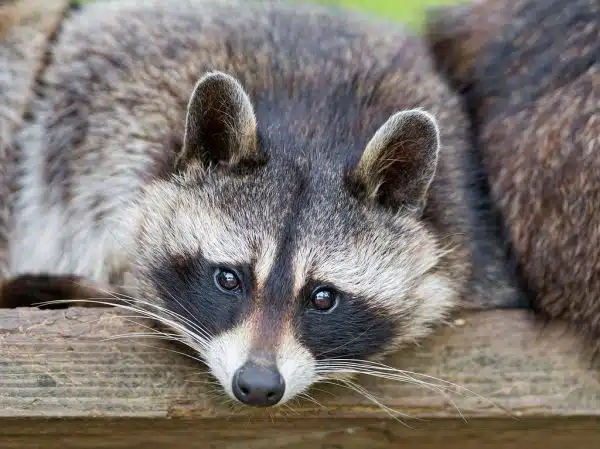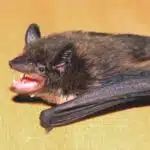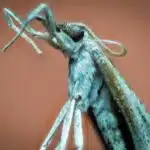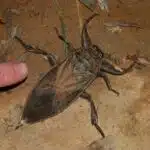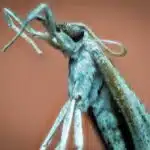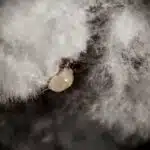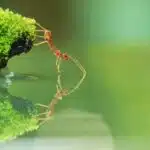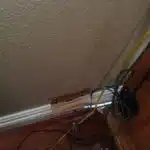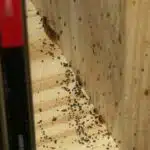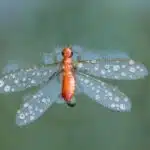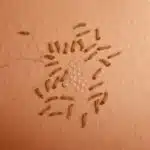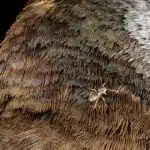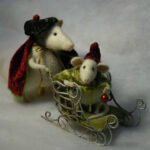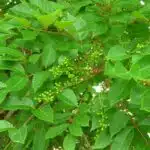Raccoons are notorious for their mischievous behavior and their ability to infiltrate even the most secure areas. They have adapted well to urban environments, making them a common sight in residential areas. While raccoons may appear cute and harmless, they can cause significant damage to your property and pose health risks to you and your family. As a pest control expert, it is essential to know how to get rid of raccoons from your property effectively.
Raccoons are attracted to properties that offer easy access to food, water, and shelter. This makes garbage cans, pet food bowls left outside, bird feeders, and uncapped chimneys prime targets for these creatures. Raccoons can also damage roofs, walls, and lawns as they search for shelter or dig up soil looking for insects. Therefore, it is crucial to implement effective measures that will keep raccoons off your property without harming them or causing any unnecessary disruptions.
Identifying The Signs Of A Raccoon Infestation
A raccoon infestation can be likened to a silent predator prowling in the night, leaving little evidence of its presence. However, knowing how to identify the signs of a raccoon presence is crucial in preventing an infestation from spiraling out of control. One common indication that raccoons have taken up residence on your property is the presence of their droppings. Raccoon droppings are typically cylindrical in shape and range from 2-3 inches in length.
Aside from their feces, raccoons leave other telltale signs of their presence. For instance, they may scratch or tear at your trash cans, gardens, or bird feeders as they search for food. Additionally, you may hear them moving around under your porch or deck at night. These nocturnal creatures are known for their stealthy behavior and often remain hidden during the day.
Identifying these signs early on can help prevent further damage caused by raccoons on your property. However, it’s important to understand that simply identifying these signs won’t solve the problem entirely. The next step is understanding raccoon behavior and habits, which will be discussed in detail in the following section.
Understanding Raccoon Behavior And Habits
To effectively deal with raccoons on your property, it is vital to understand their behavior and habits. Raccoons are omnivorous creatures and will eat almost anything they can find, including nuts, fruits, insects, small animals, and human food waste. They are also nocturnal animals that prefer to be active during the night. During the daytime, they rest in trees or other sheltered areas.
Raccoons mate between January and June, with the peak breeding season occurring in February and March. The gestation period lasts for about 63 days after which they give birth to two to five cubs. The mother raccoon takes care of her young until they are old enough to fend for themselves. This breeding pattern means that you may have more raccoons on your property during certain times of the year.
To prevent raccoons from invading your property, it is essential to remove any potential food sources and seal off any entry points into your home or garage. Additionally, you should avoid leaving pet food outside overnight as this can attract raccoons. If you have fruit trees or a vegetable garden in your yard, make sure to harvest the produce frequently to prevent attracting these critters.
Understanding raccoon behavior and habits can help you develop a strategy for dealing with them effectively. However, it’s important to note that DIY removal methods may not be effective in the long run. In the next section, we’ll discuss why it’s best to avoid these methods and seek professional assistance instead.
Why You Should Avoid Diy Removal Methods
Understanding the behavior and habits of raccoons is important before deciding on any removal methods. However, it is equally important to consider the risks of DIY (Do-It-Yourself) removal methods. There are several reasons why you should avoid attempting to remove raccoons from your property on your own.
Firstly, raccoons can be aggressive when threatened or cornered, and they may attack humans or pets. They are also carriers of various diseases such as rabies, leptospirosis, and salmonella. Attempting to trap or handle a raccoon without proper equipment and training can put you at risk of injury and disease.
Secondly, DIY removal methods may not be effective in eliminating the entire raccoon population on your property. Raccoons are intelligent animals that can adapt quickly to new environments, making it difficult for inexperienced individuals to catch them all. This can lead to re-infestation or even worse, unintentional harm to other wildlife that may get caught in the traps.
Therefore, hiring a professional raccoon removal service is highly recommended. Professional exterminators have the necessary equipment and expertise to safely remove raccoons from your property without putting anyone at risk. They also provide long-term solutions that will prevent future infestations by identifying entry points and implementing exclusion measures.
In conclusion, avoiding DIY raccoon removal methods is crucial for ensuring the safety of yourself and others on your property while effectively eliminating these pesky critters. Hiring a professional raccoon removal service guarantees not only safe elimination but also long-term prevention of future infestations.
Hiring A Professional Raccoon Removal Service
While there are various DIY methods of raccoon removal, some homeowners may prefer to hire a professional service. Hiring a professional raccoon removal service has its pros and cons. On the one hand, it saves time and hassle for the homeowner. Professionals have specialized equipment and experience in handling these animals, which means they can effectively remove them from your property without causing harm to the animal or endangering themselves.
On the other hand, hiring a professional can be costly. The cost of raccoon removal services varies depending on factors such as location, severity of infestation, and the company you choose to work with. It’s essential to do your due diligence beforehand by researching different companies, comparing their prices and services offered.
Cost comparison is not the only consideration when deciding whether to hire a professional or not. Homeowners should also weigh their personal safety concerns and their desire for humane treatment of animals against the convenience of hiring someone else to do the job. In any case, it’s always best to consult with an expert before making any decisions regarding raccoon removal from your property.
Now that we’ve discussed the pros and cons of hiring a professional raccoon removal service let’s move on to assessing the severity of the infestation before taking any action.
Assessing The Severity Of The Infestation
After considering the option of hiring a professional raccoon removal service, it is important to assess the severity of the infestation. This step will help you determine whether a professional intervention is necessary or not. There are several signs that indicate the presence of raccoons on your property. These include:
- Seeing raccoons during the day
- Hearing noises in your attic or crawl space
- Finding torn insulation or droppings in your attic
- Damaged gardens or bird feeders
- Unusual smells coming from your chimney
If you notice any of these signs, it is likely that there is an infestation on your property. The severity of the infestation can vary, from just one raccoon to a family of them. It is important to assess this before taking any action.
Assessing infestation severity requires a thorough inspection of your property. You should look for signs such as paw prints, damage to your roof or siding, and feces around your home. If you are unsure about how severe the infestation is, it’s best to seek advice from a professional pest control expert. They can offer guidance on what steps need to be taken next.
Determining whether or not you need professional intervention depends on the severity of the infestation and how comfortable you are with handling it yourself. In general, if you have a large number of raccoons on your property, it’s best to hire professionals who have experience dealing with these animals. They know how to safely remove them without causing harm to anyone involved.
Now that we’ve assessed whether professional intervention is necessary, our next step will be safeguarding our home against raccoons.
Safeguarding Your Home Against Raccoons
As a homeowner, you want to safeguard your property against raccoons. These pesky critters are known for their curiosity and problem-solving skills, making them formidable opponents when it comes to protecting your home. However, there are raccoon proofing strategies that you can use to keep these animals at bay.
One effective way to deter raccoons from entering your property is by using natural deterrents. One such method is by planting certain types of plants that raccoons dislike, such as marigolds or daffodils. Additionally, using motion-activated sprinklers or lights can startle and scare off any potential raccoon intruders.
Another way to prevent raccoons from entering your home is by securing all entry points. This includes checking for holes in the roof or walls and covering any openings with mesh wire or steel plates. It’s important to remember that raccoons are excellent climbers, so securing all entry points also means trimming back tree branches and shrubbery that may provide easy access to your home.
| Raccoon Proofing Strategies | Pros | Cons |
|---|---|---|
| Motion-activated Sprinklers/Lights | Effective at startle/scaring off raccoons | May be triggered by other animals or cause a disturbance for neighbors |
| Secure Entry Points | Prevents access into home | Requires regular maintenance and upkeep |
| Plant Natural Deterrents | Eco-friendly and aesthetically pleasing | Not 100% guaranteed to deter all raccoons |
By implementing these strategies, you can effectively safeguard your home against unwanted intruders like raccoons. However, it’s important to remember that removing attractive food sources is also crucial in preventing these animals from becoming a nuisance on your property.
Removing Attractive Food Sources
To effectively get rid of raccoons from your property, it is important to take a multi-faceted approach. One way to discourage raccoons from entering your property is by implementing natural deterrents. These can include planting certain herbs or installing motion-activated sprinkler systems. Additionally, removing any sources of food that may be attracting raccoons is also crucial.
A common source of attraction for raccoons are fruit trees. If you have fruit trees on your property, it is important to regularly pick up any fallen fruit and dispose of it properly. Another option is to remove the fruit trees altogether if they are not essential to your landscaping.
By taking these measures, you can significantly reduce the likelihood of raccoons entering and damaging your property. In the next section, we will discuss another important step in safeguarding against raccoons – installing raccoon-resistant trash cans.
Installing Raccoon-Resistant Trash Cans
As a pest control expert, I highly recommend investing in raccoon-resistant trash cans as an effective solution to prevent raccoons from entering your property. The benefits of these specialized trash cans are numerous. Firstly, they are designed to withstand the strength and cunning of raccoons, which means that they cannot be easily knocked over or opened by these critters. This ensures that your garbage remains safely contained until pickup day.
When choosing the right raccoon-resistant trash can for your property, you should consider several factors. Firstly, you need to determine the size of the container that will accommodate your waste disposal needs. Secondly, you need to evaluate the durability and sturdiness of the can itself. Finally, you also want to ensure that it is easy to use and maintain.
Investing in a raccoon-resistant trash can not only keeps your property free from unwanted pests but also contributes to keeping the environment clean and healthy. With these specialized containers, there is no need to worry about unsightly and smelly garbage littering your yard or attracting other animals like rodents and insects. Plus, with their long-lasting durability and low-maintenance design, raccoon-resistant trash cans are a cost-effective investment in both time and money.
To further secure your property against pesky raccoons, it’s essential to take additional measures such as securing pet food and water bowls. By ensuring that all sources of food are inaccessible to these animals, you minimize their chances of being attracted into your yard or home.
Securing Your Pet’s Food And Water Bowls
Raccoons are attracted to pet food and water, so it is important to secure your pet’s bowls. Leaving pet food outside can attract raccoons and other wildlife, which can lead to problems. Raccoons are known for their ability to open lids and containers, so it is essential to invest in a durable container that will prevent them from accessing your pet’s food.
One of the best ways to secure your pet’s food is by using an elevated feeding station. This will not only keep raccoons away but also prevent other animals like skunks and opossums from gaining access to the food. Another option is to feed your pets indoors or at specific times throughout the day. This will help reduce the amount of time that the food is left outside unattended.
If you have tried DIY prevention methods without success or if you have a serious raccoon infestation, it may be necessary to seek professional assistance. A pest control expert can offer more permanent solutions and assess the extent of the problem. They can also provide advice on how to prevent raccoons from returning in the future.
Tips for securing your pet’s food:
- Invest in a durable container that prevents raccoons from accessing your pet’s food.
- Use an elevated feeding station or feed your pets indoors.
- Seek professional assistance if DIY prevention methods do not work or if you have a severe infestation.
Now that you have secured your pet’s food, it is time to move onto sealing off access points to your home. By doing this, you can prevent raccoons from entering and causing damage inside your home.
Sealing Off Access Points To Your Home
As we discussed in the previous section, securing your pet’s food and water bowls is crucial when it comes to keeping raccoons off your property. However, there are other common access points that you should be aware of. These include open windows, unsecured trash cans, and gaps in your home’s foundation or roofline. In this section, we will discuss effective sealing techniques to keep raccoons from entering your home through these access points.
One of the most effective ways to seal off access points is by using heavy-duty materials such as steel mesh or hardware cloth. You can use these materials to cover vents or any other openings that lead into your home. Another way to prevent raccoons from entering is by installing motion-activated lights or sprinklers around the perimeter of your property. These devices will startle raccoons and deter them from coming back.
It’s important to note that while sealing off access points will help keep raccoons out of your home, it won’t necessarily solve the problem if they’ve already established a den inside. If you suspect that raccoons have already taken up residence on your property, it’s best to call in a professional pest control service to safely remove them. Remember, prevention is always better than cure when it comes to dealing with wildlife pests.
Protecting Your Chimney with a Cap: Raccoons are known for their climbing abilities and may find their way onto your roof by using trees or nearby structures as leverage. Once on the roof, they may try to enter your chimney if it’s left unprotected. To prevent this from happening, install a chimney cap made of durable materials such as stainless steel or copper. This will not only keep raccoons out but also protect against other wildlife pests like birds and squirrels who may try to nest inside.
Protecting Your Chimney With A Cap
Chimneys are common entry points for raccoons and other wildlife. As a pest control expert, I recommend regularly inspecting your chimney for any damage or cracks that could allow animals to enter. Chimney maintenance is crucial in preventing animal infestations, and it is essential to hire a professional to repair any damages.
In addition to regular maintenance, animal proofing techniques can also be used to protect your chimney from raccoons. Installing a cap on your chimney is an effective way to prevent animals from entering. A cap will cover the top of the chimney, preventing raccoons from climbing down and entering through the opening. It is important to choose a cap with small enough openings that will not allow animals to enter but still allows proper ventilation.
Protecting your chimney from raccoons requires ongoing effort and vigilance. Regular maintenance, such as inspecting for damages and installing a cap, can go a long way in preventing animal infestations. By implementing these animal proofing techniques, you can ensure that your property remains safe and free of unwanted wildlife. In the subsequent section, we will explore using repellents and deterrents as additional methods for keeping raccoons off your property.
Using Repellents And Deterrents
Repellents are substances designed to make an environment less attractive to pests, while deterrents are measures designed to discourage pests from entering the property. Examples of repellents include natural options such as garlic, peppermint or chilli powder, as well as store-bought solutions. Deterrents can be natural, such as cayenne pepper, or store-bought, such as motion-activated sprinklers. When applying repellents and deterrents, it is important to consider their effectiveness as well as the pros and cons of each option.
Repellents
As a homeowner, the last thing you want is to find raccoons rummaging through your trash cans or making a mess of your garden. These pesky critters can cause serious damage to your property and carry diseases that can be harmful to you and your pets. If you’re tired of dealing with raccoons, there are a few repellents you can try.
One option is using a natural repellent, such as peppermint oil or ammonia. Raccoons have sensitive noses and don’t like strong smells, so spraying these substances around your property may discourage them from sticking around. However, keep in mind that natural repellents may not be as effective as other methods and may need to be reapplied frequently.
Another option is electronic deterrents, such as motion-activated sprinklers or ultrasonic devices that emit high-pitched sounds. These gadgets are designed to startle raccoons and make them think twice about coming back to your yard. While these devices can be effective in deterring raccoons, they can also be expensive and may not work for all situations.
Keep in mind that no single method will work for every situation. It’s best to use a combination of tactics, such as securing trash cans, removing potential food sources (like pet food left outside), and using repellents or deterrents. By taking proactive steps to prevent raccoons from entering your property, you’ll have a better chance of keeping them at bay for good.
Deterrents
Homeowners who are dealing with pesky raccoons on their property may find it necessary to use repellents and deterrents. While natural repellents such as peppermint oil or ammonia can be effective in deterring raccoons, they may not work for all situations. In some cases, electronic deterrents like motion-activated sprinklers or ultrasonic devices may be a better option.
Natural deterrents can be a good choice for homeowners who want to avoid using chemicals or other harmful substances. Peppermint oil and ammonia are strong-smelling substances that raccoons don’t like, so spraying them around the property can discourage these critters from sticking around. However, keep in mind that natural deterrents may need to be reapplied frequently and may not be as effective as other methods.
Electronic deterrents, on the other hand, use technology to startle raccoons and make them think twice about coming back to your yard. Motion-activated sprinklers are particularly effective in keeping raccoons away from areas where they might cause damage, such as gardens or trash cans. Ultrasonic devices emit high-pitched sounds that humans cannot hear but are unpleasant for raccoons, making them less likely to hang around your property. Keep in mind that electronic deterrents can be expensive and may not work for all situations, so it’s best to use a combination of tactics when trying to keep raccoons at bay.
Trapping And Relocating Raccoons
Many homeowners opt to trap and relocate raccoons as a way of controlling their population. However, this method is not without controversy. Some experts argue that relocating raccoons is not an effective long-term solution and can even harm the animals themselves.
One theory suggests that because raccoons are territorial creatures, relocating them to a new area may cause conflict with other raccoon populations already established there. This can result in fighting or even death of the relocated raccoon. Additionally, relocating raccoons can spread diseases or parasites to other animals in the new location.
If you still decide to relocate raccoons, here are some ethical considerations to keep in mind:
- Choose a relocation site that is far from human populations.
- Ensure that the area has adequate food and water sources for the raccoon.
- Release the raccoon during daylight hours so they have time to find shelter before nightfall.
- Do not release mother raccoons with young babies as it may lead to their separation.
- Check local regulations before trapping and relocating any wild animal.
In summary, while trapping and relocating raccoons may seem like a humane solution, it is important to consider all factors before doing so. Ethical considerations such as adequate food/water sources and checking local regulations are essential for ensuring the well-being of both humans and wildlife.
Moving forward, once you have successfully relocated any unwanted visitors from your property, it is necessary to take steps towards cleaning and sanitizing your property thoroughly.
Cleaning And Sanitizing Your Property
Trapping and relocating raccoons is an effective way to get rid of them from your property, but it is not enough. After removing them, you need to clean and sanitize your property to ensure that they will not come back. Green cleaning and eco-friendly products are the best options for this task. These products are safe for the environment, humans, and animals, which means that they will not harm the ecosystem in your area.
Disinfecting techniques and sanitizing solutions are essential when cleaning up after raccoons. Raccoons carry diseases such as rabies, salmonella, and leptospirosis, among others. These diseases can be transmitted to humans through contact with their feces, urine or saliva. Therefore, it is crucial to use proper disinfectants and sanitizers when cleaning up after them.
Incorporating green cleaning practices and using eco-friendly products will help prevent future infestations on your property. In addition, sealing any entry points that raccoons may use to access your home is critical. This includes repairing holes in roofs or walls, covering chimneys with a cap, and keeping garbage cans secured with tight-fitting lids. By taking these preventative measures, you can ensure that your property remains raccoon-free in the future.
Transitioning into the subsequent section: By following these steps for preventing future infestations on your property, you can rest easy knowing that you have taken all necessary precautions against future raccoon invasions.
Preventing Future Infestations
Preventing future infestations of raccoons is crucial to maintaining a pest-free property. One effective solution is to make landscaping modifications that eliminate potential food sources and hiding spots for these animals. This may include trimming back overgrown bushes, removing fallen fruit from trees, and securing trash cans with tight-fitting lids.
Creating physical barriers can also be an effective method for preventing raccoon infestations. Fencing around gardens, decks, and other areas where raccoons may try to access can deter them from entering your property. Additionally, sealing off any openings into your home or shed with wire mesh or other materials can prevent these pests from finding shelter on your property.
To further prevent future infestations, it is important to remain vigilant and address any issues promptly. Keep an eye out for signs of raccoon activity such as overturned trash cans or paw prints in the soil. By taking proactive measures such as regular maintenance and proper waste disposal, you can enjoy a pest-free property year-round.
- Implementing these preventative measures can save you money on costly pest control services in the long run.
- A clean and well-maintained property not only deters raccoons but also enhances curb appeal.
- By taking steps to prevent future infestations, you are protecting not only your own property but also the surrounding ecosystem from potential damage caused by these invasive animals.
Conclusion
Raccoon infestations can be a serious problem for homeowners. If left unchecked, they can cause damage to property and pose health risks to humans and pets. Identifying the signs of a raccoon infestation is the first step in getting rid of them. Once you have confirmed their presence, it is important to understand their behavior and habits to effectively remove them.
While DIY removal methods may seem like a cost-effective solution, they can be dangerous and ineffective. It is best to hire a professional raccoon removal service that has the experience and knowledge to safely remove these animals from your property. They will assess the severity of the infestation and use appropriate techniques such as repellents, deterrents, trapping, and relocation.
After the raccoons have been removed, it is important to clean and sanitize your property thoroughly to prevent future infestations. Taking preventative measures such as securing trash cans, sealing entry points, and trimming trees can also help keep raccoons away. Remember that raccoon removal should only be done by professionals who follow humane practices and local regulations.
As a pest control expert, I advise homeowners to take immediate action upon discovering signs of a raccoon infestation on their property. Ignoring this problem can lead to costly damages and health hazards. By hiring a professional removal service that understands raccoon behavior and uses safe techniques for removal, you can ensure a successful outcome with minimal harm or stress to both yourself and the animals involved. Preventative measures are also crucial in maintaining a raccoon-free environment on your property so that you can rest assured knowing your home is safe from these pesky critters.
Image Credits
- “Relaxed raccoon” by Tambako the Jaguar (featured)

